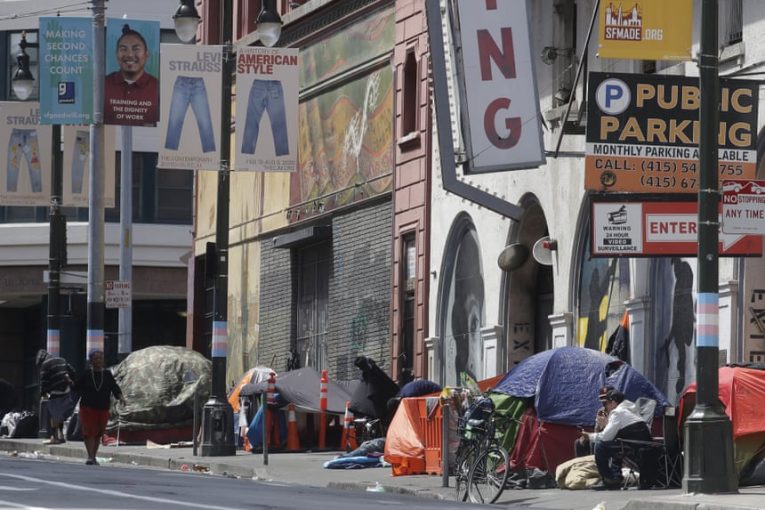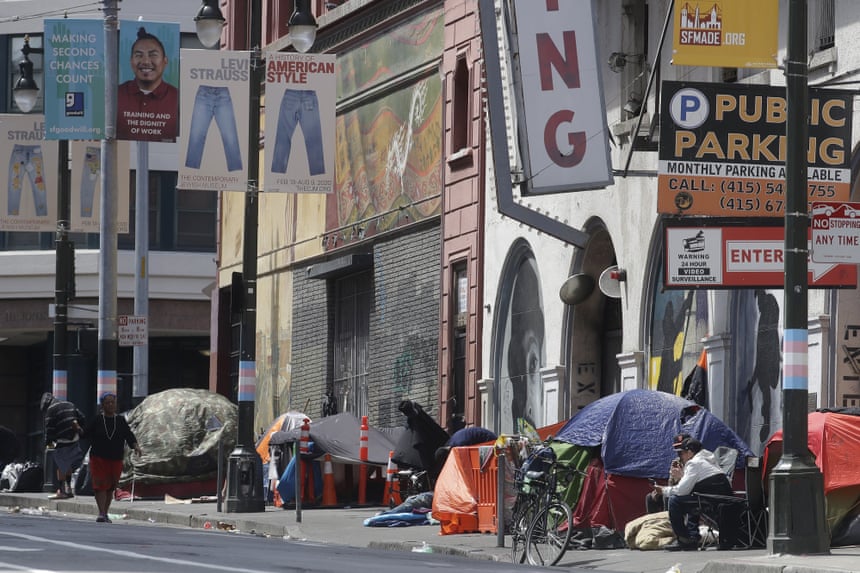

By David M. Greenwald
Executive Editor
San Francisco, CA – The article title caught my eye – “Brooke Jenkins Says She Wants to Focus Less on Politics and More on the Day-to-Day Work as SF’s Top Prosecutor.” Brooke Jenkins has been nothing but political since she resigned from the DA’s office and campaigned to get her former boss recalled.
Given everything that has happened this year, the comment was perhaps deeply ironic.
Then there is her continued attempted to dodge the fact that she claimed she was a volunteer when in fact we have learned she was paid, paid a lot by a group with connections—same location, same name as the organization running the recall.
The SF Standard asked: “You were a volunteer spokesperson for the DA recall, and we had a story about you’re also getting paid by three nonprofits, which have connections to the recall. Did your connection with the recall help you get hired by the three nonprofits?”
She continued to dodge, stating, “I certainly … was referred to organizations by people that I met during the recall, but the two were not connected.”
Does anyone actually believe that?
Still, a big concern here remains her policies for dealing with drug offenses.
She said during the interview: “What I’m hoping is that we no longer see 30 or 40 drug dealers out on the street on a single block anymore. That’s the goal. We are taking the steps to deter those who think that coming to sell drugs in San Francisco is without risk.”
She added, “The (former) DA’s office had effectively decriminalized drug sales so they didn’t really see a consequence. We want to be making sure that we implement policies to deter that behavior because it’s really our communities of color, our migrant communities that are suffering from not only having these sellers out on the street, but it attracts those who have addiction, it creates violence and other sort of collateral consequences for that behavior.”
This is a deeply troubling statement on so many levels.
Brooke Jenkins and her office are singling out drug dealers, but there is a huge difference between drug dealing and possession for sale.
That’s a big problem, because one of Jenkins’ policies is stopping “the previous administration’s practice of referring drug dealers to the CJC.”
Experts such as the Drug Policy Alliance point out that the differentiation between drug sellers and drug users is problematic.
“Research and history have shown that the vilification and criminalization of people who sell drugs does not reduce problematic drug use, reduce the availability of drugs, or keep people who use drugs safer,” a 2019 policy paper by DPA pointed out.
Instead they noted a 2012 survey which found that “43% of people who reported having sold drugs in the past year also reported that they met the criteria for a substance use disorder.”
Further, “Laws against drug selling are so broadly written that it is easy for people caught with drugs for personal use to get charged as dealers, even if they were not involved in selling at all.”
Another problem here involves the fact that she doesn’t want to see “30 to 40 drug dealers out on the street…”
In her policy put out a few weeks ago, she noted, the DA’s office “will bundle misdemeanor drug possession charges for individuals with at least five misdemeanor citations for public drug use.”
The key point: “public.”
As someone tweeted: “Clean up the streets and make them safe for the children.”
It sounds good to say you will clean up the streets. But who uses drugs in public? Poor people. Disproportionately people of color. We know from data on drug usage that drugs are actually relatively evenly distributed. Whites and Blacks for example use at similar rates. And while Blacks are disproportionately charged and convicted of drug crimes, white and Blacks use and sell at similar rates.
By going after people who can’t afford to do drugs in their own homes or who are in fact homeless, the DA’s policies are, de facto, criminalizing homelessness and poverty.
If the money were going to treatment and shelters, then perhaps it would be justifiable. Excluding people who have possession for sale from CJC (Community Justice Center) which Jenkins argues “was always intended to help those with substance abuse issues who need help, not drug dealers,” misses the overlap between drug use and drug sales to support the addiction.
Brooke Jenkins has of course singled out fentanyl as a very dangerous drug—which of course it is.
But how did we get to the fentanyl crisis? A decade ago, prescription drugs—opioids—were being widely misused. The problem is that prosecutors and drug companies started cracking down on misuse of drugs like OxyContin. But the result was that after the medication was reformulated in 2010 to deter misuse and after health providers cracked down on providing pain medication, the addiction problem didn’t stop—it just shifted to heroin and fentanyl—which was cheaper, easier to acquire but also a lot more deadly.
The problem in San Francisco, however, is not one of high-level drug dealers.
As a May article in the San Francisco Standard noted, we are not talking about people dealing in kilos here, we are talking low-level drug dealers.
“We’re not talking about folks that are dealing in kilos, we’re talking about folks that are dealing in grams,” said Marshall Khine, who in May was the DA’s office’s chief assistant district attorney. “Many times, because they are low-level offenders on non-violent offenses, we also take into consideration some of the stressors, particularly because some of the individuals that we see are trafficked themselves.”
Moreover, arresting drug dealers without treating the underlying problem is not going to fix the underlying drug problem.
“We filled up the jail and we never lowered the consumption of drugs in the Tenderloin because we arrested one dealer and another guy came in,” former SF DA George Gascón told the Vanguard in August.
“The new DA says they will start arresting people there, she will end up in the same place,” Gascón said. “You know the reason why, because until you attend to the social issues and the lack of housing and the lack of treatment, you can arrest people today and they will be cycling in and out. You can arrest drug dealers and there will be another group of young kids who will come in the next day to sell drugs because the demand is high and the amount of drugs is very high.”
He argued, “It’s foolish to think that you can clear out the Tenderloin by arresting your way out of there.”
Arresting drug dealers not only doesn’t decrease drugs and cycles people through the system, it’s actually dangerous because it destabilizes the market. So when those kids rise up to fill the vacuum led by the arrests, there is often violence as existing drug dealing areas are disrupted and dealers fight to attempt to establish their territory.
Brooke Jenkins may want the drug dealers to disappear, but unless she is aiming at simply a cosmetic change, it is going to take a lot more than a few arrests and prosecutions to actually change things.


Here we go again. Mr.Greenwald appears to be obsessed with Ms. Jenkins policies, but he is not willing to give her a chance to prove that her approach, very different from her predecessor’s, could actually work. Give her 6 months without kvetching and then let’s come back to see the results! The truth is that he is not willing to accept that his favorite D.A. Boudin was ousted by popular demand. So the will of the voters doesn’t count when they vote democratically to oust a D.A. who had become a pubic nuisance with his insanely lax policies? Why? Because he was a so-called “progressive”?
The other issue – once again – is that mixing up drug dealers and users to better avoid taking action against the latter is a cop out. These dealers are not victimized by anyone except themselves: they choose to deal, whatever their reasons for doing so, and as such they should face the consequences of their choices. It’s called personal responsibility.
The approach has been tried many times – and has not worked. Why would we expect it to work this time?
What’s your solution David?
Decriminalization of all drugs. Harm reduction. Fully fund treatment centers for people impacted by drugs. Put money into education, job training, mental health treatment, and housing.
The solution [edited] is to offer evidence-based drug treatment instead of automatically imprisoning them.